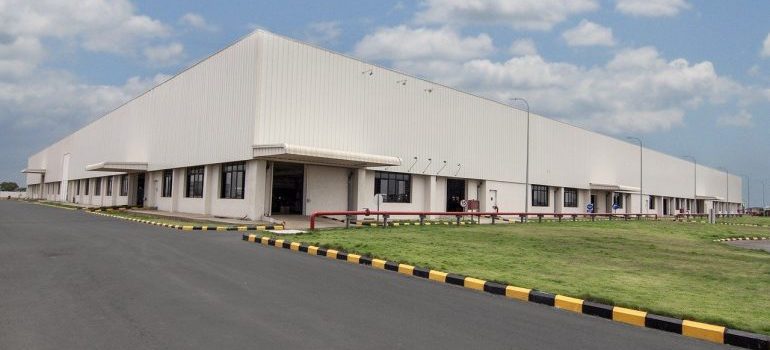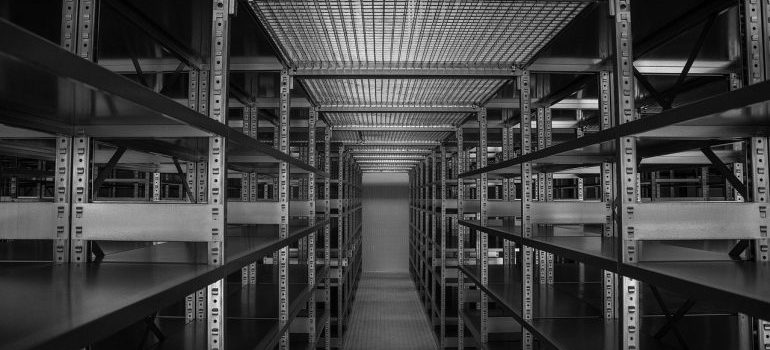What are the costs of renting warehouse storage
get a quote
Warehouse storage is essential for many companies in the Seattle metro area, whether for inventory management, seasonal stock, or specialized equipment. The costs of renting warehouse storage go beyond monthly rent—they include factors such as location, accessibility, lease terms, security, and operational expenses. Hence, the article breaks down the full spectrum of considerations when choosing warehouse storage, including comparisons to portable temporary storage Seattle units.
Financial costs of warehouse storage
Renting warehouse storage comes with several expenses beyond the base rent. Compared to portable storage units, which offer flexible pricing and month-to-month rentals, warehouses often require long-term commitments and additional fees. Understanding these costs helps businesses determine whether a warehouse or a portable storage solution is better.
Base rent and lease terms
Warehouse rental rates in Seattle vary based on location, square footage, and features. The average cost per square foot for warehouse space in the metro area ranges from $0.75 to $2.50 per square foot per month:
- Downtown Seattle and prime locations: higher demand means rates between $1.75 and $2.50 per square foot.
- Suburban areas like Kent or Everett: more affordable options exist, with prices closer to $0.75 to $1.50 per square foot.
Most landlords require a minimum lease term of one to three years, making it a long-term commitment compared to portable business storage Seattle units, which are often available monthly.

Additional costs and fees
Beyond the base rent, tenants often face extra costs, including:
- Triple net (NNN) expenses: covers property taxes, insurance, and maintenance, often adding $0.30 to $1.00 per square foot.
- Security deposits: typically equivalent to one to three months’ rent.
- Utilities: electricity, water, and HVAC costs can range from $100 to $1,000 per month, depending on the warehouse size and usage.
- Loading dock or specialized access fees: some facilities charge extra for loading docks, climate-controlled areas, or 24/7 access.
On the other hand, portable storage units offer a more budget-friendly alternative for companies looking to avoid these extra costs. With no property taxes, lower security costs, and no long-term lease commitments, portable storage eliminates many of the financial burdens associated with traditional warehouse rentals.
Operational considerations beyond cost
Renting warehouse storage involves more than just financial expenses. Businesses must also evaluate factors like security, accessibility, logistics, and flexibility. Considering these operational factors can help business owners decide whether warehouse storage or a portable storage solution is the right fit.
Security features
Security is a critical factor when renting a warehouse. While portable storage units often include individual locks and surveillance at storage facilities, warehouse tenants may need to invest in:
- Security cameras ($500–$5,000 for installation)
- Access control systems ($1,500–$5,000 for keycard or biometric entry)
- On-site security guards ($3,000–$6,000 per month)
In contrast, portable storage units offer built-in security at professional storage facilities. Companies can have door-to-door storage Seattle units delivered, picked up, and kept safe in a secure facility nearby—without needing to arrange extra security measures themselves. It reduces expenses and simplifies logistics, making mobile storage units a more convenient and worry-free solution for businesses that need reliable storage.

Location and accessibility
The location of the storage space impacts the overall costs of renting warehouse storage in multiple ways:
- Proximity to ports and highways: warehouses near Seattle-Tacoma International Airport, the Port of Seattle, or major highways (I-5, I-90) may be more expensive due to demand from logistics companies.
- Traffic and transportation costs: moving goods in and out of downtown Seattle can increase costs due to tolls, fuel, and congestion.
- Worker accessibility: locations near public transit can help attract warehouse staff, reducing hiring and retention costs.
On-demand mobile storage provides a flexible alternative to businesses requiring quick, hassle-free access to their inventory. Instead of dealing with traffic, warehouse restrictions, or long-term leases, business owners can have portable storage units delivered directly to their location, picked up when needed, and transported to a secure facility nearby.
Why flexibility matters in business storage
Businesses often face changing storage needs, whether due to seasonal inventory shifts, company growth, or relocation. That is why an ideal solution must allow businesses to scale, move, and adjust storage as needed without unnecessary expenses.
Scalability without long-term commitments
Warehouse leases require companies to commit to a fixed amount of space for years, even if their storage needs change. Expanding within a warehouse can be expensive, and downsizing still means paying for unused space. Mobile storage units offer a flexible alternative, allowing businesses to increase or decrease storage as needed without long-term contracts. This is especially beneficial for seasonal inventory, growing enterprises, and temporary storage needs.
Ease of relocation without added costs
Moving warehouse inventory can be complex and costly. Companies must coordinate transportation, break leases, and arrange logistics, which adds unnecessary expenses. Portable storage eliminates these challenges by offering door-to-door delivery and pickup. Business owners can have storage units transported directly to a new location or kept in a secure facility until needed, making relocation simpler and more cost-effective.

Storage that adapts to business needs
Warehouse storage often lacks flexibility, forcing companies to adjust to a fixed space instead of having storage that adapts to them. Portable storage allows them to store items on-site or off-site, move units when needed, and only pay for the storage they use. It also ensures that storage solutions always align with business demands, providing a practical and budget-friendly alternative.
Choosing the right storage—maximizing efficiency
Renting warehouse storage in the Seattle metro area involves more than just the price per square foot. Companies must account for lease commitments, security, operational efficiency, and industry-specific needs.
A warehouse lease may be the best option despite higher setup and operational costs for businesses requiring large-scale, long-term storage. However, mobile Woodinville self storage units can offer a cost-effective and flexible solution for short-term or mobile storage.
The bottom line is, that before committing to a warehouse lease, business owners and managers should evaluate the true costs of renting warehouse storage, security needs, and scalability to determine the best storage solution.
